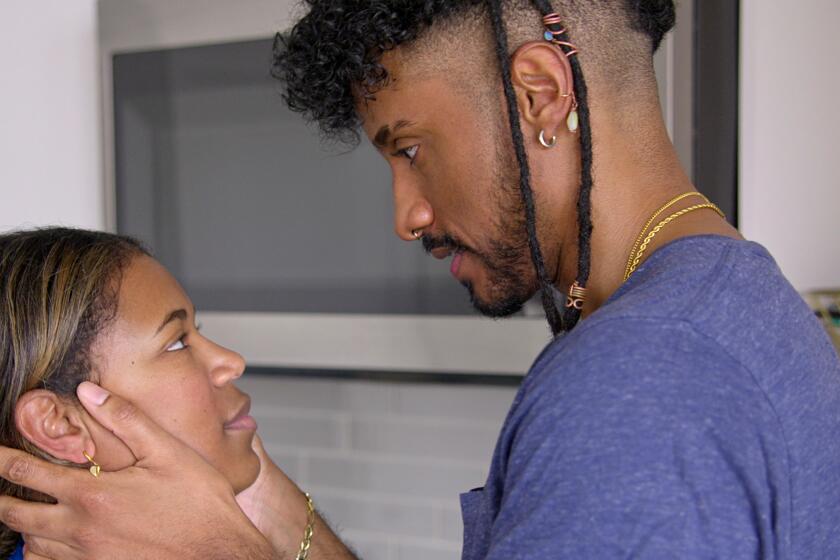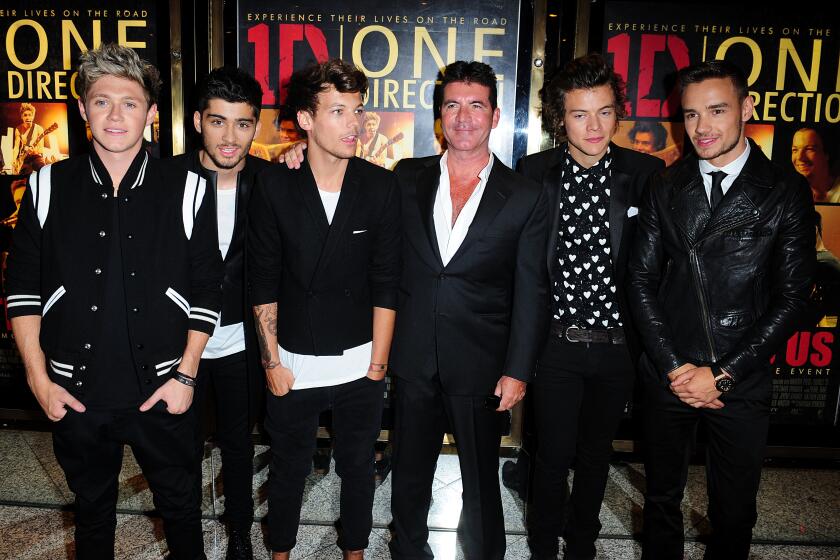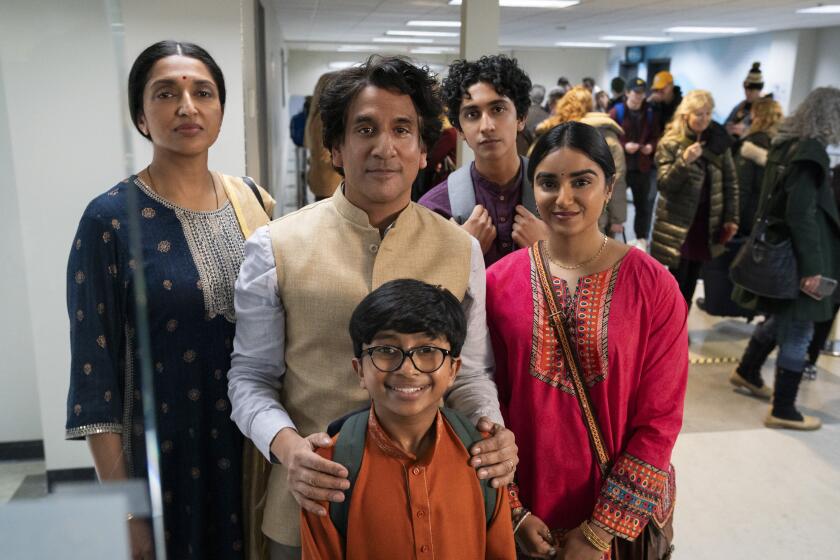TV REVIEW : Teens Talk About Pains of ‘Break-Up’
The award-winning “ABC Afterschool Specials” series won its honors for teen-oriented dramas about substance abuse, peer pressure and other pertinent issues; now in its 21st season, the series is changing its focus from drama to reality-based programming, produced by Oprah Winfrey’s company Harpo Productions Inc.
In today’s season premiere, “Surviving a Break-Up” (at 3 p.m. on Channels 7, 3, 10 and 42), Winfrey uses her daytime talk-show format and an audience filled with anguished young people to explore the effects of teen romances gone sour.
Winfrey gets things rolling: “How do you live through the agony of your first heartbreak . . . when it feels like your heart’s ripped out of your chest and run over by a Mack truck?” She confides her own first broken romance and then introduces a 19-year-old who weeps as she talks of her unfaithful, lost love. A tearful boy describes how he was “on top of the world” when he and his girlfriend were together. Now that she’s gone, he says his life is “garbage.”
The confidences are interspersed with counsel from psychologists and other experts and celebrity spots--”Blossom’s” Mayim Bialik, John Stamos from “Full House” and rappers Hammer and Salt-N-Pepa are among those who share their own break-up stories and advice for recovery.
Some of the teen-agers who tell of their personal heartbreaks were filmed at home, where they show pictures of their former loves, read personal letters and play the sad song that always make them cry. In the studio, they reveal alarming details about obsessive behavior and thoughts of suicide.
The downside is that the show suffers from the built-in negatives that shape TV’s profitable trade in personal misery: voyeurism and exploitation. Winfrey is warmly sympathetic, for instance, yet her segues seem insensitive because the audience’s pain doesn’t shut off for commercial breaks or light-hearted filmed inserts.
The upside is that young viewers who share the same feelings as the sufferers will know they’re not alone, while both parents and teen-agers will receive information that can help--the teens to cope, the parents to recognize their son’s or daughter’s very real pain.
The complete guide to home viewing
Get Screen Gab for everything about the TV shows and streaming movies everyone’s talking about.
You may occasionally receive promotional content from the Los Angeles Times.



